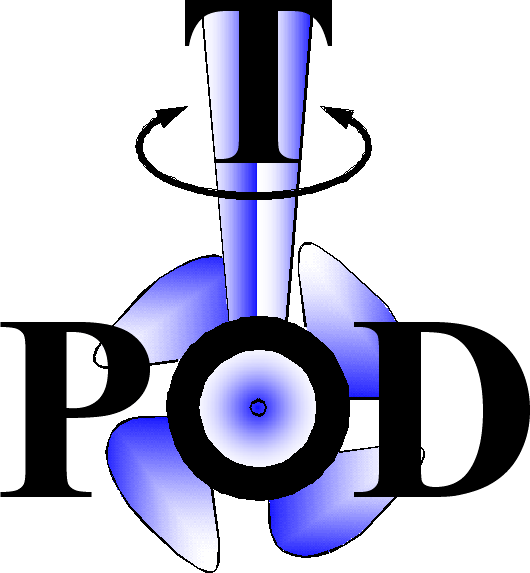


|
|
|
This paper constitutes the continuation of OPTIPOD project investigations towards deeper recognition of some propulsive performances, of the podded Ropax, in chosen exploitation circumstances. The due approaches will be threefold and based on dedicated model tests. The first of them compares the absorbed propulsive energy increase due to equivalent works of such steering devices like classical rudder blades, whole POD units and only their flaps, in simulated overloading conditions, corresponding with higher sea states. The second approach intends to compare propulsive efficiencies of the podded Ropax, being propelled either by Controllable Pitch propellers with pitch values suited for optimum diesel engine revs or by electric PODs with Fixed Pitch propellers working at constant nominal torque in simulated overloading conditions as well. The last group of comparisons is focused on analyses of Ropax propulsive efficiency when she is propelled by a/m adequate propulsors, i.e. classical ones and by the state of art PODs, in conditions of calm but restricted waters, at the edge of Diesel engine stability. The main intentions of such versatile investigations is to summarise present achievements mainly in scope of appearing controversies and to deepen singularities of POD propulsor work in some extremities so as to show new possible ways of more efficient exploitation of podded vessels. |
|
Send mail to
tpod@ncl.ac.uk with
questions or comments about this web site.
|